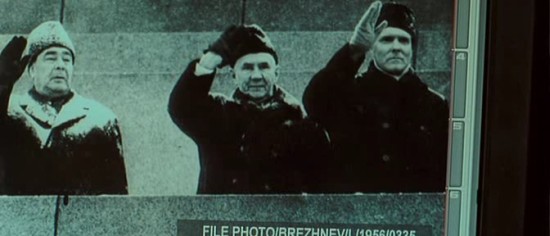Guest Post: Pundita: Missing Something?
Sunday, August 28th, 2011We’re delighted here at Zenpundit to present a cross-post from our blog-friend Pundita — of whom it has been said that “What Julia Child did for French cooking, Pundita is doing for foreign policy discussion. She’s opened a haute pursuit to ordinary people.”
Pundita quotes Mark in this post, and also raises some interesting issues with regard to America and monarchism — and as I have been prepping a series of posts on “the impact of ritual and ceremonial in church, military and state,” we all agreed it would be good to bring this post across to ZP in the hope of stirring some discussion — and see how things develop from there.
Pundita’s epigraph for this post is as follows:
Alan Rickman‘s Sheriff of Nottingham to a scribe: “Wait a minute. Robin Hood steals money from my pocket, forcing me to hurt the public, and they love him for it? That’s it then. Cancel the kitchen scraps for lepers and orphans, no more merciful beheadings, and call off Christmas.”
We bid her welcome.
— Charles Cameron
___________________________________________________________________________________________
Pundita writes:
The title of this post refers to the punch line in a series of TV commercials in the USA for Sears Optical eyeglasses. The ads feature amusing skits of people in serious need of a pair of glasses, such as the woman who mistakes a police patrol car for a taxicab. But helped along by bravura performances from Tara L. Clark as a blind-as-a-bat cat owner and Squirty as a wild racoon who can’t believe his luck, one of the skits is so funny it’s gone viral on the internet:
Oh look it’s a democracy! Come snuggle with the United States!
There is nothing funny, however, about American officials who are so blind to what the United States stands for they snuggle with governments that march to a very different drumbeat than their own. Yet the officials are supported in their blindness by an equally blind populace. So in this post I’m going to break a taboo and wrestle with topics that are only whispered about in this country: monarchism and America’s involvement with it. To set the stage I’ll start with quotes from two recent news reports:
From the Globe and Mail (Canada), August 19, 2011:
Stephen Harper is working to recast the Canadian identity, undoing 40 years of a Liberal narrative and instead creating a new patriotism viewed through a conservative lens.Restoring the “royal” prefix to the navy and air force this week is just part of the Prime Minister’s attempt at “creating a new frame” for Canada and Canadians. …
From the New York Times, August 17:
A photograph taken last Friday of Gary F. Locke, the new United States ambassador to China, buying coffee with his 6-year-old daughter and carrying a black backpack at a Starbucks in the Seattle airport, has gone viral on the Chinese Internet. The seemingly banal scene has bewildered and disarmed Chinese because they are used to seeing their own officials indulge in privileged lives often propped up by graft and bribery and lavish expense accounts.
[…]
The first impression from the Starbucks episode has been bolstered by another photograph that shows Mr. Locke, his wife, Mona, and their three children carrying their own luggage after landing at Beijing Capital International Airport.Chinese who saw them then spread the word that the family had gotten into an anonymous minivan because a formal sedan that had been sent to pick them up was too small.
“To most Chinese people, the scene was so unusual it almost defied belief,” Chen Weihua, an editor at China Daily, an official English-language newspaper, wrote in an article Wednesday.
Cheng Li, a scholar at the Brookings Institution who studies Chinese elite politics, said in an e-mail: “Ambassador Locke’s photo contrasts sharply with the image of the Chinese officials who often live in a secret, insulated, very privileged fashion.
Often I’ve heard it asked why Britain’s political Right doesn’t seem much less socialist than the country’s Left. I’d say the answer is that the United Kingdom’s welfare state has as much to do with Marxism as bread and circus did under the Roman emperors. I’d also say the same answer would apply to the welfare state in the Kingdom of Norway and the Kingdom of Sweden and a number of other countries that are constitutional monarchies.
Yet my fellow Americans have such difficulty seeing monarchism that they confuse it with something else. The same blindness can afflict Americans who insist that China is not much different from the United States. In his 2008 article for the May/June issue of Good magazine (Ten Reasons Why China Matters To You), Thomas P.M. Barnett, an American security analyst, wrote that “China’s transformation echoes much of America’s past. … right now, China is somewhere in the historical vicinity of ‘rising America’ circa 1880.”
In my retort (The National Petition Bureau will see you now, Dr Barnett), I pointed out that Chinese make the pilgrimage to a bureau that’s a CCP placemarker for an emperor’s go-fers. I added in exasperation, “Ah yes, I remember as if just yesterday the tens of millions of American peasants in the 1880s who pilgrimaged to the nation’s capital every year to seek redress from the emperor.”
Dr Barnett turned out to have a sense of humor or at least a fair-minded attitude about receiving criticism because he linked my post at his blog. Yet that did little to allay my concern that Washington’s foreign policy establishment was blind as a bat to the fact that modern China is an imperial society with a frownie face of Communist Party dictatorship painted on it, and that modern Britain and a good number of other NATO-member countries are basically monarchist societies with a smiley face of democracy plastered on them.
One could even make an argument that modern Mexico’s most entrenched problems are rooted not in the rule of the Spanish but in indigenous imperial civilizations that predated Spain by thousands of years.
In fact, the more one starts looking around the world for societies that are not holdovers from the days of kings the more one appreciates that the United States of America has very few natural allies; i.e., countries that represent a real break with monarchism and the class systems that uphold it.
Norwegians might bristle at their society being described as monarchist. They would point out that their noble class has no political power anymore and that Norway today is an egalitarian society. However, it is an egalitarianism so rigidly enforced that the Norwegian mass murderer Anders Behring Breivik believed after he set off a bomb in Oslo that he would be caught and killed by the police before he reached Utoya island.
His faith in the omniscience of Norway’s government was dashed but the point is that the country’s egalitarian “open society” is maintained by the second largest deployment of public-space CCTV cameras outside the United Kingdom. And Norway’s generous public welfare system means that from cradle to grave Norwegians are easily monitored by the state, which helps the government make sure Norway stays an open, egalitarian society.
Yet Americans insist on describing such states as Leftist! Karl Marx would roll in his grave if he saw what passes today for many Leftist governments.
These same Americans decry their government’s close alliance with absolute monarchies such as the Kingdom of Saudi Arabia. They do so without realizing that there is a long history of the United States being closely allied with monarchies; that many of these are no longer “absolute” but “constitutional” with parliamentary forms of government and voting rights makes them no less monarchist.
Americans were also miffed at what they considered snobbishness when they heard the Swedish Chairman of BP, Carl-Henric Svanberg, expressing concern for the victims of the Gulf oil spill by referring to them as “the small people.”
Translation malfunction, explained his apologists. There was no malfunction; English is Svanberg’s second language. And he wasn’t being snobbish, he was being Swedish. Noblesse oblige and all that; one must always look after the basic needs of the small people so they don’t revolt.
None of the above is meant as a criticism of the countries I’ve mentioned or their people, and one would be hard-pressed to find nicer peoples than the majority of Swedes or Norwegians — and Canadians for that matter, who also live under a constitutional monarchy. I see no harm in people upholding traditions that provide them with a sense of order and give them continuity with their past, which is why I cheered on the royal pomp associated with the marriage of William and Kate. If it helped Britons get clearer on their values I was all for that.
The harm comes when Americans are so unclear on their own values, their own past and traditions, they can’t engage closely with the rest of the world without becoming terribly confused. One consequence is that the more the U.S. government has tried to mesh with the “international community,” the lower America’s standing in the world has fallen.
Americans can’t turn the situation around without first acknowledging that the international community is in large measure of bunch of royalists. Arriving at this realization doesn’t mean Americans should eschew friendly relations with people in such societies or that official Washington should spurn engaging with the governments on issues of mutual interest. It does mean that Americans are asking for ever greater trouble by lumping “democratic” monarchies” with American democracy.
Over at ZenPundit, Mark Safranski has again expressed concern about what he calls an emerging American oligarchy, an elite that’s manipulating the rest of the American populace to accept its rule. Meanwhile, Fareed Zakaria is seriously proposing that America replace its president with a prime minister and Congress with a parliament — with an upper house, I suppose, to be stuffed with Mark’s oligarchs, duly elected of course, so that Americans will stop the troublesome habit of vehemently disagreeing with one another.
Now just see how one thing leads to another. First you’re snuggling with liberal monarchies, then authoritarian ones, then one day you’re asking, ‘Why is there no USA anymore? Why is there only the international community?’
Missing something?




